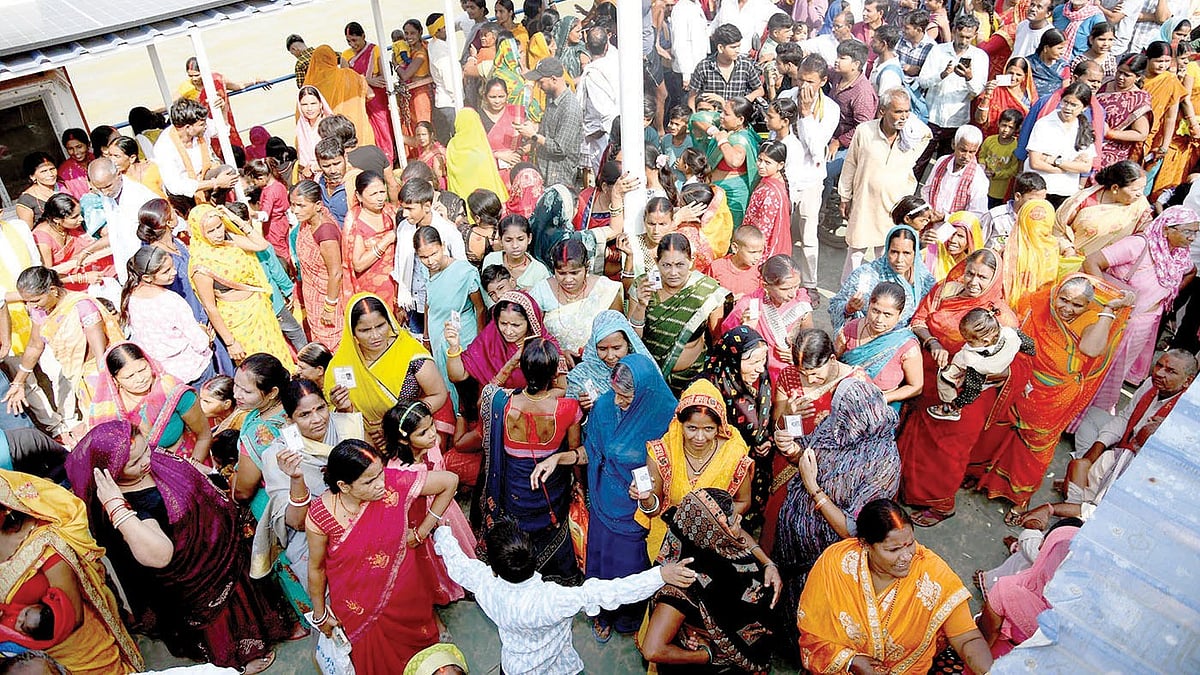POLITICS
Is it time yet to boycott elections?
Why shouldn’t the Opposition boycott elections? Why shouldn’t citizens pressure the Opposition to stay away? Yogendra Yadav tries to find answers

After the Bihar results, many people asked me the same question — what’s the point of contesting elections anymore? If every election will hand the BJP victory on a platter and decimate the Opposition, why grant legitimacy to a foregone conclusion? Why shouldn’t the Opposition boycott the elections? Why shouldn’t citizens themselves pressure the Opposition to stay away from upcoming polls?
I don’t agree with this conclusion. But the question is a serious one. The people asking it are not leaders of defeated parties. They have no personal stake in the Opposition. Most of them are ordinary citizens, thinkers, activists — people who are attached not to any party but to democratic norms, to the idea of the Republic, concerned about its future. The question is not an idle thought. It arises from the slow decay of our democracy — a decay that worries people who care.
Like many long-established democracies around the world, India too has now reached a point where it cannot be described as a functioning democracy, or even a flawed one. Nor is it an old-style dictatorship — the kind with martial law and censorship. The 21st century has brought forth a new model of authoritarianism in which institutions and democratic conventions are hollowed out, while retaining the ritual of elections.
Power still needs a veneer of public endorsement, so elections must exist. But the playing field is not level; for the Opposition, elections are now like a hurdle race. Yet, they can still win. Because the regime needs the theatre of public approval, elections cannot become an outright farce; they must seem to mirror public sentiment. Winning an election is incredibly hard for those who oppose the government, but it’s still not impossible.
Published: undefined
In these circumstances, the question ‘why run this race at all?’ is not out of place. Why not boycott elections and expose this farcical ritual for what it has become — a stage-managed extravaganza that stamps the ruler’s authority with a false seal of popular support? The answer is not simple.
Since the game revolves around legitimacy, the real question is: how will the public perceive a boycott? Will they see it as rejection of a fixed match or the retreat of a losing player?
Calls for a boycott should, therefore, be tested on two grounds: first, has the Opposition done everything possible to win? Do people believe that the Opposition did everything it reasonably could to earn public support?
Second, is it clear that the results were rigged? Does the public understand that the outcome does not reflect the true will of the people? On both these counts, the Bihar election does not fully qualify. Which means the demand for a boycott cannot be justified purely on the basis of the Bihar results.
Let’s start with the Opposition’s preparedness. Anyone who knows Bihar politics knows the Opposition has been up against two deep, structural challenges for a long time.
First, the NDA’s social coalition is much stronger than that of the Mahagathbandhan. The MGB leans on a solid Muslim-Yadav base, and partial support from the Ravidas and Mallah communities — together around 40–42 per cent of the population. The NDA, on the other hand, has upper castes, plus Kurmis, Kushwahas, Paswans and a large chunk of Hindu EBCs (extremely backward classes) — who together account for over 50 per cent.
To expand its coalition, the Opposition had to first weave together the backwards, Dalits, other marginalised and poor into one united social alliance. This, it did not manage.
Published: undefined
Meanwhile, Nitish Kumar’s government continued its long-running effort to win over women voters, and before the polls, extended state largesse in the shape of pension hikes, increases in honorariums, cuts in electricity bills for sundry other pressure groups. Given this landscape, an NDA victory is not exactly shocking — and calling for a boycott in this context will not really wash with the people of Bihar.
During and after the Bihar election, there were widespread complaints of irregularities. And yes, Bihar was a case study in systemic bias. Deleting 68 lakh names from the rolls and adding 24 lakh new ones; allowing women to be given Rs 10,000 cash benefits after the Model Code of Conduct had kicked in; deploying the same ‘Jeevika didis’ on election duty; running special trains to bring BJP supporters from other states; the near-total capture of the media, which campaigned day and night for the NDA and spewed venom against the MGB — are enough to show the scale of structural discrimination.
But at this moment, we still lack conclusive proof of outright rigging in the narrow sense. Yes, there are allegations of inflated turnout figures, manipulated vote counts, sudden surges in seat leads, but these do not yet amount to conclusive evidence of rigging.
On a matter this sensitive, making claims without proof is not wise. If more evidence emerges later, that’s a different story. But for now, beyond diehard supporters of the opposition alliance, few are ready to believe that the NDA won through blatant theft.
Views are personal. More of Yogendra Yadav’s writing can be read here
Published: undefined
Follow us on: Facebook, Twitter, Google News, Instagram
Join our official telegram channel (@nationalherald) and stay updated with the latest headlines
Published: undefined